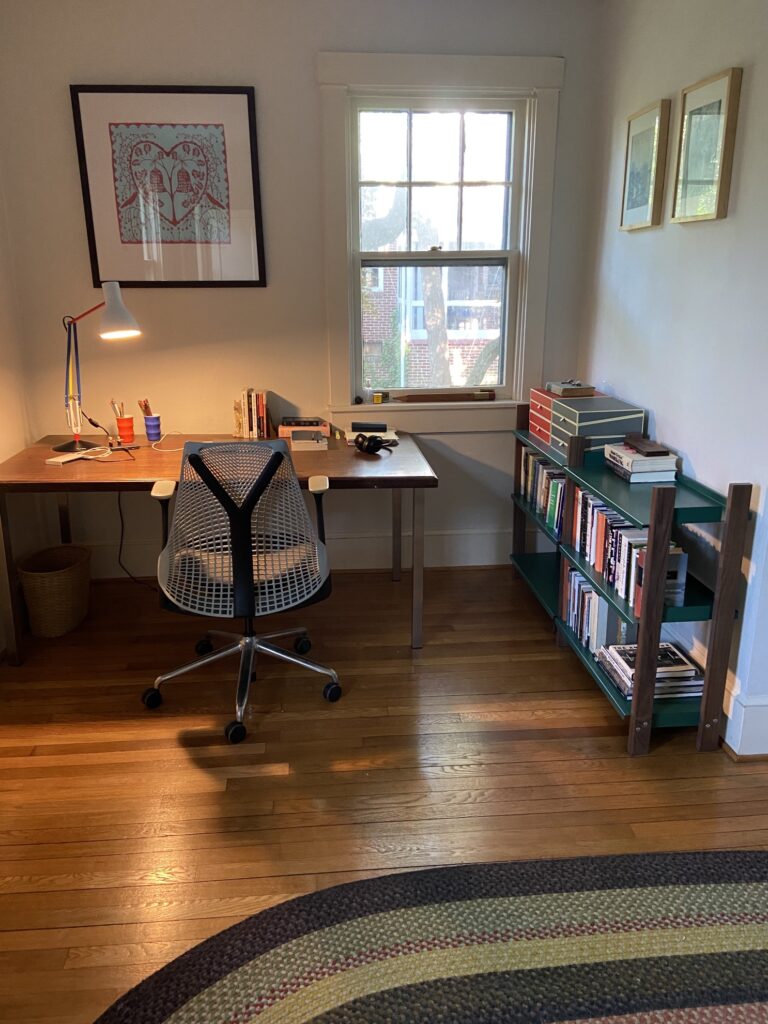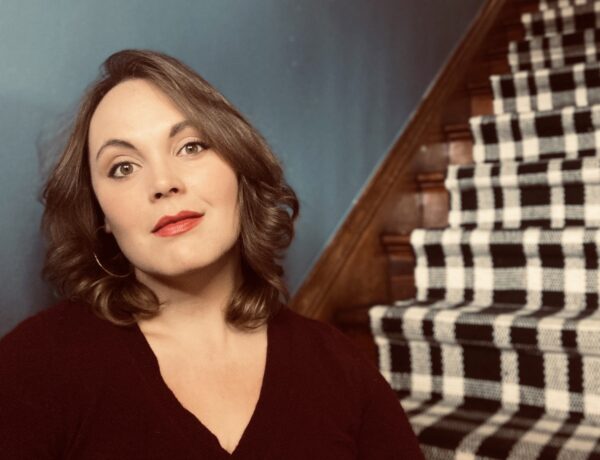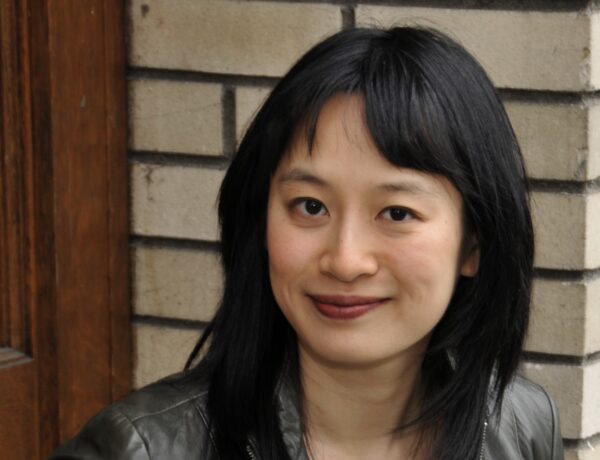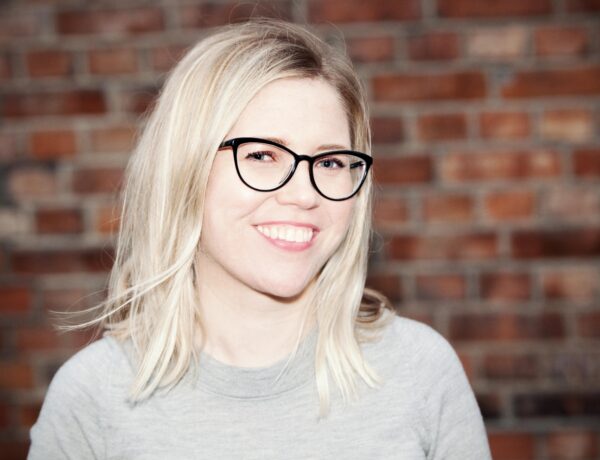Nicholas Montemarano was born in Brooklyn and grew up in Queens. His first memoir, If There Are Any Heavens, was recently published by Persea Books. He is the author of three novels, The Senator’s Children (2017), The Book of Why (2013) and A Fine Place (2002).
His short story collection, If the Sky Falls (2005), was a New York Times Book Review Editor’s Choice. His stories have been published in Esquire, Tin House, Zoetrope: All-Story, and many other magazines. His fiction has won a Pushcart Prize and a National Endowment for the Arts fellowship. He is the Alumni Professor of Creative Writing and Belles Lettres at Franklin & Marshall College in Lancaster, PA, where he lives with his wife and son.
Each week, we publish a new daily writing routine from a famous author. Subscribe to our newsletter so you don’t miss out!
Hi Nicholas, welcome to Famous Writing Routines, great to have you here with us today! Your latest work, If There Are Any Heavens, is a memoir about your experience during the COVID-19 pandemic. What inspired you to write about this period of time?
I wouldn’t say that I was inspired to write the book, more that I needed to. My mother died from COVID, and I started writing about that experience only a few days after her funeral—the need was that immediate. I didn’t know, not then, that I was writing a book; I was simply writing. Only when I finished did I ask myself: What did I write? The answer: a book.
The book has been described as a “memoir, a poem, a mournful but loving song”. How did you approach writing it and what creative techniques did you use to tell this deeply personal story?
I wrote it quickly, urgently. I think that’s part of what led to the lines breaking—I wrote fact after fact, phrase after phrase, and moved to the next line with no punctuation. Even though the book looks like poetry—and is, I suppose—it was, to me, a memoir that happened to use line breaks. Because it’s such a personal story, I tried to stick to the truth of what happened. Moment after moment, fact after fact, I just kept going.
It’s interesting to me that, even writing about something that I had just lived through, I still did research: I reread my mother’s medical records, and texts between us, and between me and my sister as we tried each day to advocate for our mother. We were trying, really, to save her—as if we could.
You are also the author of three novels and a short story collection. How does your approach to writing fiction differ from writing a memoir?
This is my first book-length memoir, but I had previously published short memoir pieces in magazines and anthologies. No matter the length, I have found memoir to be easier in one way: the story exists, and my work is to find the best way (chronology, structure) to tell it. With fiction, especially novels, I have felt burdened by the weight of plot. That’s probably why I’m a more natural short story writer than novelist.
When I’m writing a short story, I can more easily wrap my mind around its plot. That said, the biggest challenge when writing a memoir is that you can no longer remain behind the curtain of fiction. With fiction, you might be writing about certain aspects of your actual lived experience, but no one will ever know. With memoir, there’s no curtain.
As the Alumni Professor of Creative Writing and Belles Lettres at Franklin & Marshall College, what advice do you have for aspiring writers and what do you believe are the key elements of great writing?
I tell my students all the time that great storytelling comes down to nine words: Make me care. Make me worry. Make me wait. Whether you’re writing fiction or memoir, you have to do those three things. I’m a “sound” writer. I care greatly what writing sounds like. I read and write with my ears.
I alway encourage students to read their work aloud and imagine that they’re giving a reading in front of an audience. With practice, you learn to hear when your audience may lose interest. The other piece of advice I’ve been passing along to students for years is this: Write your next book or story or poem as if it’s the last one you will ever write. It should matter that much.
You have received recognition for your writing, including a Pushcart Prize and a fellowship from the National Endowment for the Arts. How have these awards impacted your writing and career?
Winning a Pushcart Prize was on my bucket list from my earliest days as a writer. When I was in my twenties, I devoured literary magazines and looked forward to each annual Pushcart Prize anthology. I felt honored to join the company of so many writers who had won a Pushcart before me and every writer who would win one after me.
The NEA fellowship happened during a magical time of my career when everything seemed to be going right. Writers need a certain amount of tangible success in order to keep going, and they also need failure—which comes whether you want it or not. But when recognition and support come your way, you need to be grateful and hold onto that feeling; it can sustain you during dry periods.
Do you struggle to stay focused while writing? You’re not alone! That’s why Famous Writing Routines recommends Freedom – the ultimate app and website blocker for Mac, Windows, Android, iOS, and Chrome. With over 2.5 million users, Freedom helps writers stay on task and avoid distractions. Get started for free today and reclaim your productivity!
Can you tell us about your writing routine? What does a typical day look like for you?
When I was in my twenties and thirties, I tried to write every day. It was important for me to learn how to keep that commitment. But now I don’t need to write every day—nor could I. My routine varies depending on what I’m writing. When writing a novel, I try to write as many days as possible, even if only a paragraph, or even if I revise what I wrote the day before—anything to keep it alive. When writing a short story, I tend to write a draft quickly—a few days or a week, done. Then it has a life, and I can revise it as many times as necessary. Same with poetry: I’ll draft a poem in an hour or two, then pick at at for the rest of the day. Again, what matters is that I’ve given it a life. I can always go back and revise.
If you could have a conversation with any author throughout history about their writing routine and creative process, who would that person be?
Denis Johnson. I’m not sure I’d want to talk with Johnson about his writing process. I’d rather be invisible in the room and watch it happen. I doubt Johnson would even be able or care to explain his process. He seemed to be a writer who embraced the mystery of how something is created out of nothing. I’d love to be able to go back in time and watch him write Jesus’ Son.
I’d love to know about the books you’re reading at the moment. What have been some of your favorite recent reads?
Since my mother died two years ago and I wrote If There Are Any Heavens, I haven’t been able to read much fiction. I just haven’t had a taste for it. It’s so strange because I’ve spent the past thirty years reading primarily fiction. I can reread my favorite stories, especially ones I teach in my creative writing classes. I never tire of Raymond Carver, for example. But for the past two years I’ve been reading mostly poetry. The best three books of poetry I’ve read recently are frank: sonnets by Diane Seuss, Pilgrim Bell by Kaveh Akbar, and Unexpected Elegies by Thomas Hardy. I can pick up Mary Oliver’s Devotions any day and be inspired. Anything by Nick Flynn. And Gabrielle Calvocoressi’s new poems have floored me.
What does your current writing workspace look like?
I write in an office in my house. Plenty of books, of course, but I like to keep my desk free of clutter. Only my favorite books on my desk, or books related to what I’m working on, or books I plan to read next. Two cups filled with nice pencils I splurged on. Sometimes our German Shepherd comes in to sleep on the rug near my desk and keeps me company.

Affiliate disclaimer: Some links on this website are affiliate links. We may earn a small commission if you make a purchase through these links, but only promote products we truly believe in. We disclose affiliate links and give honest reviews.



No Comments